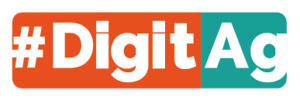Workshop on Data Science for Agriculture in Africa
November 23, 2024
Workshop supported by ASDS, #DigitAg and the MOOD project



Event affiliated with CARI’2024 (https://www.cari-info.org)
Bejaia, Algeria (hybrid)
ACCEPTED COMMUNICATIONS
CALL FOR SHORT PAPERS
SCOPE
Data science in agriculture has evolved with the accessibility of data by farmers that allow them to analyze and facilitate decision making. Today new technology like Internet of Things (IoT) enables us to collect and store farm and environmental data (e.g. soil data, water data, etc.) in dedicated databases and/or data warehouses. This agricultural data can be combined with other data sources (e.g. remote sensing, weather stations, web and social media, etc.) that need to address new challenges like ingestion of heterogeneous data.
Data science in agriculture aims to explore and mine agricultural data using different techniques like machine learning, deep learning, computer vision, text-mining, large language models (LLM), etc. For instance, data science can predict crop yields and plant and animal diseases with different variables, including rainfall, temperature fluctuations, and soil conditions by using a variety of data (e.g. sensor data, texts, satellites images, plant images, etc.).
So, agriculture professionals and decision-makers can use data science to provide information and knowledge in order to make decisions about agricultural activities in Africa.
TOPICS OF INTEREST
The topics of the workshop encompass all aspects concerning the intersection of data science and agriculture in Africa with different applications:
-
Smart Farming
-
Yield and production
-
Plant specie identification
-
Land cover monitoring
-
Crop recommendation
-
Crop monitoring & forecasting
-
Animal and plant health monitoring
-
Agroecology and water management
-
Food safety & security
-
etc.
SUBMISSIONS
Researchers, academics, and students working on the field of data science with application in agriculture in Africa are invited to submit short papers for oral presentations or posters. Submitted abstracts must be in English and will be reviewed by the workshop committees for suitability and interest to the DAAfrica audience. The authors can submit papers of unpublished work reporting original and early results, introducing new ideas or describing prototypes.
Every accepted submission must have at least one author registered for the workshop. All submitted extended abstracts must follow the LNCS format (https://www.springer.com/gp/computer-science/lncs/conference-proceedings-guideline) with a page limit of up to 6 pages including the title page, figures, references, and an optional appendix. The abstracts should be submitted electronically in PDF format via EasyChair via the following link: https://easychair.org/conferences/?conf=daafrica2024
Accepted extended abstract will be published as CEUR proceedings. Selected contributions will be invited to submit full papers to ARIMA Journal (indexed by DBLP and DOAJ) for a peer-review according to its usual reviewing process.
IMPORTANT DATES:
-
Submission deadline: August 18, 2024
-
Notification to authors: September 23, 2024
-
Workshop date: November 23, 2024
PARTICIPATION
The workshop will be held in Bejaia, Algeria, as an event affiliated to CARI’2024. This workshop will be a hybrid event that combines a “live” in-person event with a “virtual” online component.
WORKSHOP CHAIRS
-
Paulin Melatagia, University of Yaoundé I, Cameroun
-
Mathieu Roche, CIRAD, UMR TETIS, France
